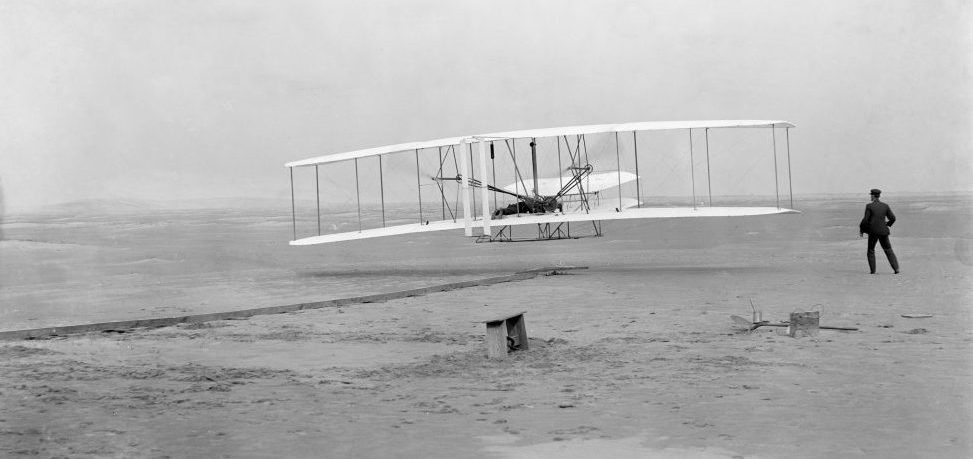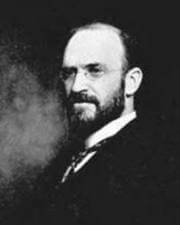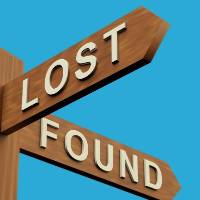Wright Brothers Day
Today is Wright Brothers Day. On December 17, 1903, Orville Wright made the first successful flight of a heavier-than-air, mechanically propelled airplane.
Orville’s brother Wilbur, who’d won a coin toss to determine who flew first, had made the first attempt on December 14, 1903. He was unable to get off the ground and caused minor damage to the plane which took a couple of days to repair.

First flight, December 17, 1903
Orville’s flight over the dunes near Kitty Hawk, North Carolina, lasted 12 seconds and traveled 120 feet before landing on the sand. Wilbur followed, and the two switched off several times. Wilbur’s last flight lasted almost a full minute and covered 852 feet.
The brothers’ plans to keep flying were dashed when winds flipped the aircraft, damaging it to the point that it was never used again. The plane known as the Wright Flyer hangs in the Smithsonian National Air and Space Museum but nearly didn’t make it there.
Samuel Langley, former Secretary of the Smithsonian Institution and founder of the Smithsonian Astrophysical Observatory, had created the Langley Aerodrome, a plane with no landing gear that had to be launched by catapult. His first flight test had ended in failure nine days before the Wright brothers’ flight.
Langley and the Smithsonian attempted to invalidate the brothers’ patents. After the Aerodrome had been modified and successfully flown a few hundred feet in 1914, the Smithsonian put it on display as “the first man-carrying aeroplane in the history of the world capable of sustained free flight.” The attempt to rewrite history was unsuccessful and the courts upheld the patents.
Because of this, Orville Wright—Wilbur died in 1912—refused to donate the Wright Flyer to the museum. Finally, in the 1940s, the Smithsonian Institution admitted it had misrepresented Langley’s Aerodrome and Orville relented. The Flyer arrived at the museum in 1948, shortly after Orville’s death.
In 1959, President Dwight D. Eisenhower signed a proclamation designating December 17 Wright Brothers Day.
When astronaut Neil Armstrong stepped onto the moon on July 21, 1969, he carried, in a pocket of his spacesuit, a piece of muslin fabric from the left wing of the Wright Flyer and a bit of wood from its left propeller.
Happy Wright Brothers Day!
![]()

 Today is the anniversary of the Boston Tea Party. On December 16, 1773, the Sons of Liberty, disguised as Mohawks, stole aboard three British ships and emptied 342 chests of tea into Boston Harbor. This act of defiance, part of a wave of resistance throughout the colonies, was a protest against British rule. Earlier that year, Parliament had passed the
Today is the anniversary of the Boston Tea Party. On December 16, 1773, the Sons of Liberty, disguised as Mohawks, stole aboard three British ships and emptied 342 chests of tea into Boston Harbor. This act of defiance, part of a wave of resistance throughout the colonies, was a protest against British rule. Earlier that year, Parliament had passed the 
